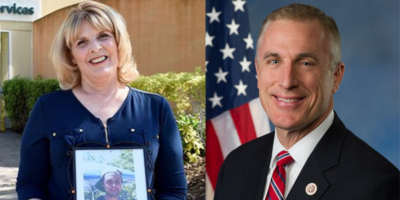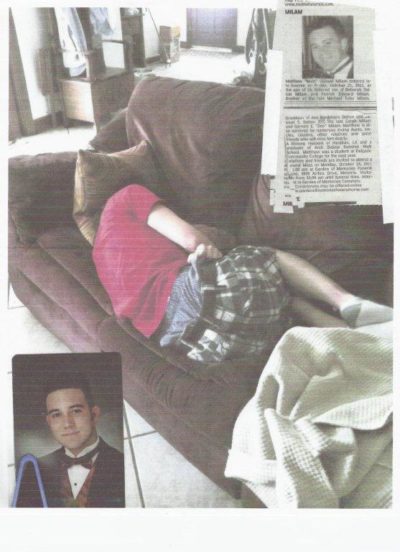&
Healing Minds NOLA – August 28, 2020 – U.S. Senator Bill Cassidy, M.D., Timothy Noonan from Spyboy Media, LLC. on Vimeo.
(9-14-20) A mother rushes her son with mental illness to a local hospital. He’s admitted because he is psychotic and considered a threat to himself or others. But when the mother calls later to check on her son, hospital officials refuse to acknowledge that he is a patient because of their interpretation of HIPAA – the Health Insurance Portability and Accountability Act.
None of us should be surprised by this mother’s plight. What makes her story different is who shared it.
U.S. Sen. Bill Cassidy, (R.-La.) cited the mother, who he described as a friend of his family’s, during an interview with advocate Janet Hays for her Healing Minds NOLA series. More about HIPAA in a moment, but first let me write more about Hays’ work.
I participated in a discussion hosted by Hays and Eric Smith with Leslie Carpenter last month about civil commitment laws. Prior to that program, Miami Dade Judge Steven Leifman and Treatment Advocacy Center’s Executive Director John Snook spoke about alternatives to incarceration. Streamlining inpatient and outpatient care was the topic of a Sept. 4th program with psychiatrists Robert Laitman and Marvin Swartz. You can find all of these programs here.
This coming Friday, Sept. 18th, at 2 p.n. EST, the topic will be the “IMD Exclusion: The 1965 Federal Rule That Crushed Psychiatric Bed Capacity,” with guests former Representative Tim Murphy (R. Pa.), the primary author of the Helping Families in Mental Health Crisis Act, and parent advocate Teresa Pasquini, who has written for my blog. 
Hays writes that she launched Healing Minds NOLA to advocate “for all those living with serious mentally illness, as well as the lives of their families and loved ones, who deserve a voice.”
From the website:
In 2020, Healing Mind NOLA implemented online programming that gives determined families, and other champions of the mentally ill, information that can be the difference between helping or losing a loved one. Our Zoomcast series has grown to see upwards of 1000 viewers listening in. Amongst the many amazing subject experts, we have hosted are U.S. Senator Bill Cassidy (Louisiana), the President of the American Psychiatric Association and the Deputy Director of the Office of Civil Rights under HHS, to educate our community on core topics such as HIPAA rules, alternatives to incarceration, and streamlining inpatient and outpatient psychiatric care.
In a fund raising appeal, Hays added:
Healing Minds NOLA will never leave behind people forced into the criminal justice system, (and solitary confinement), by laws that require dangerousness to self/others. Jails will never be a solution for a population of people who lack awareness that they are sick and therefore refuse treatment. People with any kind of illness always deserve hospital care. We will not give up the fight to ensure that our friends and loved ones receive therapeutic care in hospitals under the jurisdiction of psychiatrists, rather than incarceration settings administered by Corrections.
Her interview with Sen. Cassidy and Timothy Noonan, a lawyer and acting deputy director for health privacy at the Office for Civil Rights (OCR) at Heath and Human Services, about HIPAA is representative of her web interviews. Most of the 90 minute interview features Noonan explaining HIPAA ‘s difficult to understand rules.
When former Rep. Murphy introduced his landmark legislation, he originally proposed modifying HIPAA so that caregivers, including parents, could obtain information about a loved one who was hospitalized because of a mental disorder even if the patient hadn’t wanted information shared. He later modified his bill because of complaints by disability groups and consumer organizations. Diagnoses, treatment plans and information about medications could be released to a caregiver when it was deemed in the patient’s best interest, but not personal psychotherapy notes. That language was later gutted in the watered-down version of Murphy’s bill that eventually became law as part of the 21st Century Cures Act. The law ordered the Substance Abuse and Mental Health Services Administration (SAMHSA) to find ways to better educate medical professionals about how to apply HIPAA. Based on Hays’ interview with Deputy Director Noonan that has not yet happened even though the Cures Act became law in 2016.
There are two major problems with HIPAA. As Sen. Cassidy pointed out during the Healing Minds interview, the current law is nearly impossible to interpret. He told Hays that during a congressional hearing, he asked several experts to apply the law to an identical scenario. None of them agreed in how HIPAA should be applied.
The second problem is that HIPAA has become a convenient tool to hide behind. It easy for professionals, who are unsure how to apply the law or who simply don’t want to share information, to claim HIPAA blocks them from talking.
Deciding how to protect privacy when someone is psychotic is challenging
When he was drafting his Helping Families act, then Rep. Murphy invited Pat Milam to testify about how HIPAA was used to keep information from him and his wife, Debbie, about their 24 year-old son, Matthew, who died by suicide days after being discharged from a New Orleans psychiatric ward. Murphy had learned about Milam because he had written about Matthew’s death for my blog prior to the hearing..
“My son slashed his own throat,” Pat wrote. “He dug a grave in our backyard and told us that’s where he wanted to be buried when he killed himself. He showed his friends nooses that he’d made to hang himself, hid gasoline, propane tanks and rat poison inside his bedroom closet and attacked my wife, threw a cell phone at her and broke apart a pair of scissors and said he would kill us both and put our blood on the wall. But doctors would not discuss anything with us when we warned them that he was suicidal!”
Pat claims the doctors treating his son didn’t tell the family information about his son’s care because restrictions mandated by the Health Insurance Portability and Accountability Act (HIPAA.), even though Pat and Debbie sent frequent one way updates to Matt’s doctors. After his son’s death, Pat obtained copies of his son’s medical records and discovered that Matt had signed a wavier authorizing doctors to discuss his case with his parents. Matt’s primary psych doctor evidently didn’t care or was worn out, Pat says, “regardless, we never got a call…No one wanted to tell us anything. They would not communicate with us and Matt’s doctor certainly didn’t tell us that he thought our son was suicidal.”
According to medical records the Milam’s now have, Matt’s primary psychiatrist noted that Matt was “at a high risk for suicide or other bad outcome” three months before his death. Pat says the doctor didn’t warn him or his wife about Matt being dangerous even though he was living with them in their home at the time.
Read Milam’s full blog post here.
Thank you Janet Hays and Healing Minds NOLA for continuing to promote discussions about problems with our mental health system.
(Caption: Pat Miliam testifies HIPAA contributed to his son’s death.)



